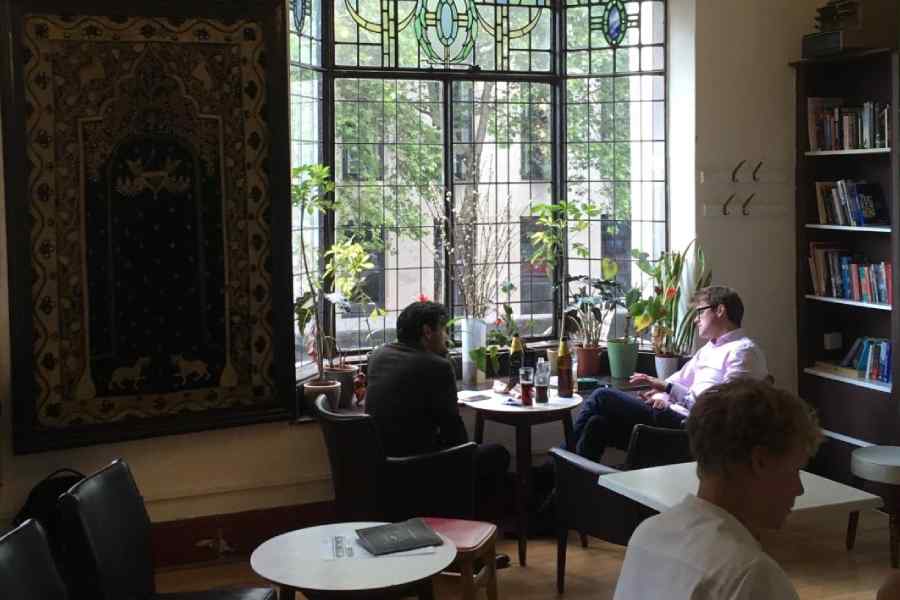Year of losses
As the year ends, my thoughts are with a college batchmate with whom I was paired for tutorial supervisions as we were reading the same subject. He has been sent home as his consultants have said that they can offer him no further treatment, with a prognosis of weeks left rather than months. Apart from close family and friends, I have made a note of some of the people lost in 2023.
The American photographer, Marilyn Stafford, who died in January, was given remarkable access by Indira Gandhi when she was India’s prime minister to take intimate family photographs. The Hollywood actress, Raquel Welch, passed away, too. I had seen her in a theatre in Guildford in The Millionairess, acting opposite Roshan Seth. We lost Srichand ‘SP’ Hinduja this year and the celebrated film critic, Derek Malcolm. Pressed by Indian directors to give an honest opinion on their movies, he would avoid hurting them by exclaiming: “I think you’ve done it again!” The Queen frontman, Freddie Mercury, died in 1991 but his belongings were auctioned off this year. I remember with much affection Praful Patel, who fought a valiant battle on behalf of Ugandan Asian refugees. To this list, I am tempted to add the historic India Club, which was forced to close its doors in The Strand on September 17. The landlords are gutting the place and turning it into an unwanted luxury hotel.
Truth seeker
Last Monday, there was a memorial requiem mass for VS Naipaul’s biographer, Patrick French, at the London Oratory in South Kensington. He died in March, aged 56. Some 400 people turned up for the Catholic service where the tribute was paid by Patrick’s younger brother, Hugh. He said he was speaking on behalf of Patrick’s wife, Meru, and his children. There was laughter in the vast church as Hugh joked that one of the children had remarked: “I knew he was a writer. But I didn’t realise he was any good.”
“His acclaimed portrait of Naipaul, The World Is What It Is, received considerable acclaim, and set new standards of biography,” said Hugh. “Nothing better perhaps encapsulates Patrick than when he declined to accept an Order of the British Empire. But he also had the PR skills to ensure his refusal ended up on page three of the Sunday Times.” “The motto of the Order is ‘For God and the Empire’,” said Patrick, making it clear this was not something to which he could subscribe.
On September 5, 2002, I reported that he had agreed to become Naipaul’s official biographer, describing it as “the biggest literary biography of our time”. Lady Nadira Naipaul explained Patrick was her choice because he was unique in having “no malice”, a good understanding of her husband’s books and cultural background and “a deep aesthetic sense”. A similar point was made at Patrick’s memorial service: “We must always seek the truth. Sometimes in our seeking the truth we might be estranged from others.”
Literary pickings
The year in the UK has been rich in books, especially on history. I include Shruti Kapila’s Violent Fraternity: Indian Political Thought in the Global Age; Nandini Das’s Courting India: England, Mughal India and the Origins of Empire; Guru to the World: The Life and Legacy of Vivekananda by Ruth Harris; Rebels Against the Raj: Western Fighters for India’s Freedom by Ramachandra Guha; and The Cambridge Companion to Winston Churchill edited by Allen Packwood. Also on my list are Lucy Fulford’s The Exiled: Empire, Immigration and the Ugandan Asian Exodus; Siddharth Kara’s Cobalt Red: How the Blood of the Congo Powers Our Lives; and What’s in a Name? by Sheela Banerjee. But perhaps the one I enjoyed most was Joya Chatterji’s Shadows at Noon: The South Asian Twentieth Century.
I estimate there are 2.5 million people of Indian origin in the UK, most of whom are Hindu or nominally Hindu. Are some of them being influenced by Hinduvta from India? That is the thesis of the book I am currently reading — Hindu Nationalism in the Indian Diaspora: Transnational Politics and British Multiculturalism by Edward T.G. Anderson.
Indian at heart
The speech of the year was made by Vikram Doraiswami, who told the PG Wodehouse Society that Jeeves, gentleman’s gentleman to Bertie Wooster, is a “disguised Indian”. Vikram’s day job, the society joked, is Indian High Commissioner to the UK.
Curry for Christmas
Christmas has become as much a British Asian festival as Diwali or Durga Puja. I have noticed that Chourangi, which is especially welcome as it has brought the cuisine of Calcutta to London, is offering a five-course Christmas and New Year set menu for £65. For non-vegetarians, the selection includes prawn cutlet, Tangra chilli chicken, kosha mangsho and tiger prawn malai curry. Dessert is malpua or steamed mango curd.










